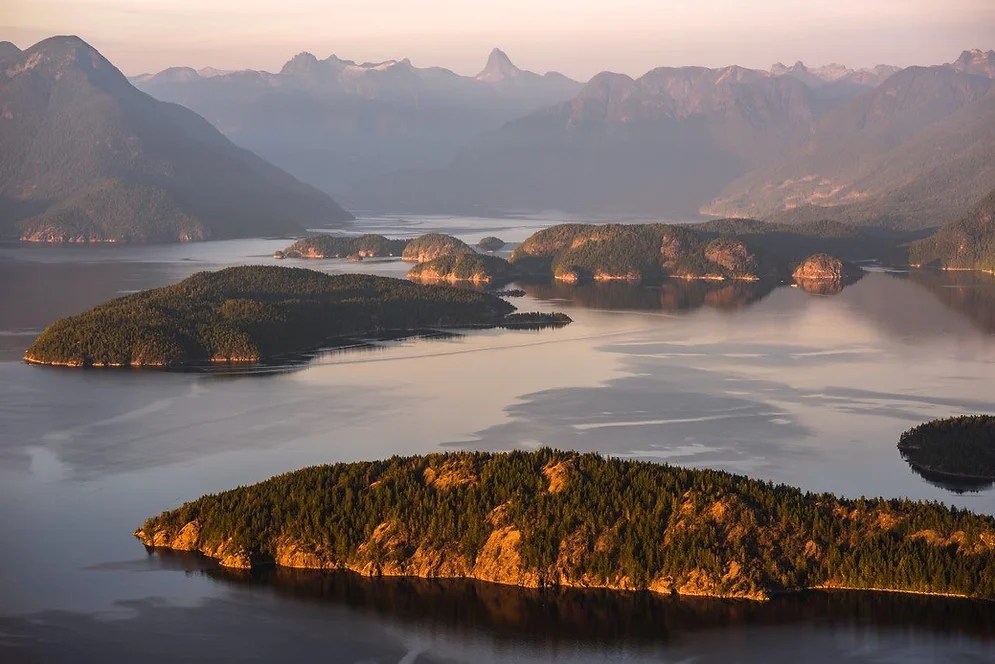Klahoose First Nation has secured 181,036 cubic metres of forest tenure — logging rights — from lumber company Interfor in the nation’s traditional territory. And they did it all on their own.

“We paid for it ourselves,” Klahoose Chief Steven Brown said. “The province’s Ministry of Indigenous Relations and Reconciliation is supporting nations to purchase tenure but we didn’t want to wait for them to come to the table so we did it ourselves.”
In British Columbia, approximately 95 per cent of the province’s timber is publicly owned and forest tenures authorize harvesting rights. Klahoose’s recent purchase adds to the over 115,000 cubic metres of forest tenure they already have.
And while the nation now has the right to harvest timber on almost 300,000 cubic metres of forest tenure, they don’t own the land itself.

This forest tenure brings Klahoose closer to its goal of being the only licensee in its territory — they’re also one of the largest First Nations tenure holders and forestry operators in the province.
“I would like to think within the next decade we will have complete control of all the forestry tenures in our area,” Brown said. “There are really only a few tenure holders in the area left, we have arrangements with some companies and are working to purchase more.”

Get daily National news
Brown said there are major benefits to his community having secured additional forest tenure.
“The first is economic development. Forestry just had a record year and a lot of those profits are what is being reinvested into this purchase,” he said.
“The second is control. If other forestry companies have this land, we’re really asking them to partner with us to say, can you please make sure that you’re staying X amount of metres away from fish-bearing streams? Can you please make sure that you’re managing your old growth by only harvesting X amount?
“What we’ve come in and done is saying, well, we’re the tenure holder, so we’re going to decide our old growth management plan and we want to double it by 2050, we want to make sure that fish-bearing streams are protected. We also want to see our people employed.”

This acquisition will help Klahoose create jobs in the forestry industry and provide hands-on experience to community members who may have had a hard time getting a foot in the door.
“The logs will go to our mill on Cortes Island and it should create about eight full-time jobs in community,” Brown said. “So people get to go home at the end of every day, which in forestry is not common.“
This is huge for the small community — whose primary village site on Cortes Island, Squirrel Cove, is home to approximately 75 full-time residents.
The nation has hired an architect who has helped them ensure all the wood can be cut at their mill and put together like kits at some of the community’s resorts.
“It’s this circular economy,” Brown said. “The logs leave the tenure, they come to the mill, they’re milled and processed and then they’re built at one of our resorts.”
Klahoose also has the environment in mind: their goal is to ensure that they’re not doing massive clear-cuts or continuing old logging practices that once left territories across the province decimated.
“It’s not boom and bust — usually what would happen is a forestry company would see that the timber value is high and they’d go out and they harvest a ton and sell all at once rather than what our goal is of long-term sustainability,” explains Brown.
“When I say First Nations forestry is successful forestry, I think we have the chance to bring new life to the industry and make it more sustainable and reliable.”
Looking for more Indigenous news? Find our stories here.
- ‘Embarrassing’: Vancouver councillor calls out mayor over drugs comment controversy
- ‘Like a spelling mistake’: B.C. teen’s DNA ‘corrected’ to cure rare disease
- ‘Ghosted’: Canadians stranded in Puerto Vallarta say they are abandoned by WestJet
- Parents of 4-year-old killed in Horseshoe Bay bus crash still waiting for answers









Comments
Comments closed.
Due to the sensitive and/or legal subject matter of some of the content on globalnews.ca, we reserve the ability to disable comments from time to time.
Please see our Commenting Policy for more.